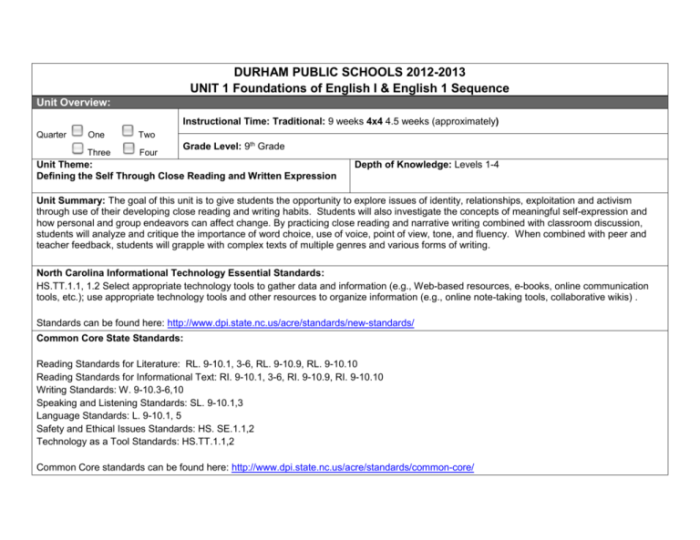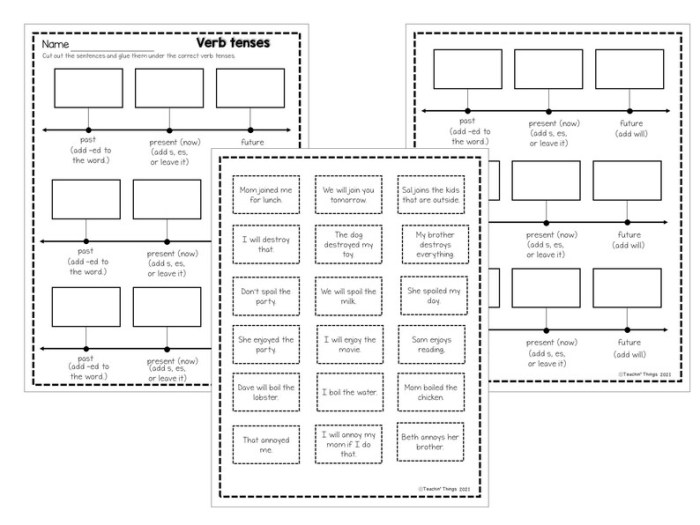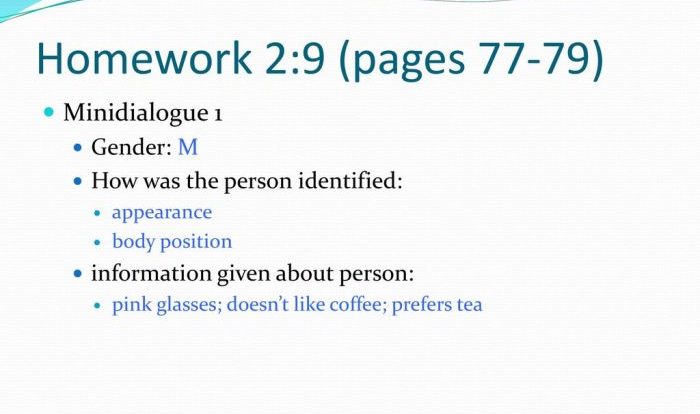Fundations level 2 unit 2 answer key – Unlock the intricacies of Foundations Level 2 Unit 2 with this comprehensive answer key. Designed to enhance understanding and support academic success, this guide provides a thorough overview of the unit’s concepts, assessments, and study strategies, empowering learners to navigate the material with confidence.
This guide delves into the unit’s key concepts and principles, establishing a solid foundation for further exploration. It examines the various assessment types employed in the unit, offering practical guidance on preparation and completion. Additionally, it curates a list of valuable resources to supplement learning, including textbooks, websites, and videos.
Foundations Level 2 Unit 2 Overview
Foundations Level 2 Unit 2 builds upon the knowledge and skills acquired in Unit 1. It delves deeper into the core concepts of information technology, focusing on the practical application of these concepts in real-world scenarios. The unit aims to equip learners with the foundational understanding and practical abilities necessary to navigate the rapidly evolving field of information technology.
This unit covers a comprehensive range of topics, including:
Hardware and Software
- Types of hardware components and their functions
- Hardware architecture and system configurations
- Types of software applications and their uses
- Software installation, configuration, and troubleshooting
Networking and Communications
- Network types and topologies
- Network protocols and standards
- Network security and troubleshooting
- Cloud computing and its applications
Data Management
- Database concepts and data modeling
- Data storage and retrieval techniques
- Data analysis and interpretation
- Data protection and security
Information Systems
- Information systems concepts and components
- Systems analysis and design methodologies
- Information systems implementation and evaluation
- Ethical and societal implications of information systems
Emerging Technologies
- Artificial intelligence and machine learning
- Blockchain and distributed ledger technology
- Internet of Things and smart devices
- Virtual and augmented reality
Unit 2 Concepts and Principles
Unit 2 explores foundational concepts and principles in the field of finance. These concepts provide a framework for understanding the financial system and its components.
The key concepts and principles covered in Unit 2 include:
- Time Value of Money (TVM):The concept of TVM recognizes that the value of money changes over time due to factors such as inflation and interest rates.
- Risk and Return:The relationship between risk and return is a fundamental principle in finance. Higher returns typically come with higher risks, and investors must balance these factors when making investment decisions.
- Financial Markets:Financial markets provide a platform for the exchange of financial assets, such as stocks, bonds, and currencies. Understanding the different types of financial markets and their functions is crucial for financial professionals.
- Financial Instruments:Financial instruments represent various types of investments, such as stocks, bonds, and derivatives. Each instrument has unique characteristics and risk-return profiles.
- Financial Institutions:Financial institutions, such as banks, insurance companies, and investment firms, play a vital role in the financial system by providing financial services to individuals and businesses.
These concepts and principles are interconnected and form the foundation of financial knowledge. Understanding these concepts is essential for making informed financial decisions and navigating the financial landscape effectively.
Unit 2 Assessments: Fundations Level 2 Unit 2 Answer Key

Unit 2 assessments are designed to evaluate students’ understanding of the concepts and principles covered in the unit. These assessments vary in format and difficulty, allowing students to demonstrate their knowledge and skills in different ways.
To prepare for these assessments, students should engage in regular review of the course material, complete practice problems, and seek clarification from their instructors when needed. By understanding the assessment requirements and preparing thoroughly, students can increase their chances of success.
Assessment Types
The following are the different types of assessments used in Unit 2:
- Quizzes:Short, formative assessments that typically cover a specific topic or module. Quizzes are used to assess students’ understanding of the material and provide feedback on their progress.
- Exams:More comprehensive assessments that cover a larger range of topics. Exams are typically used to assess students’ overall knowledge and understanding of the unit material.
- Projects:Extended assignments that require students to apply their knowledge and skills to a specific problem or task. Projects allow students to demonstrate their critical thinking, problem-solving, and communication abilities.
- Presentations:Oral or visual presentations that allow students to share their knowledge and insights with the class. Presentations assess students’ ability to communicate their ideas effectively.
- Peer Assessments:Assessments in which students evaluate the work of their peers. Peer assessments promote critical thinking, collaboration, and self-reflection.
Preparation Strategies
To prepare for Unit 2 assessments, students should:
- Review the course material regularly:This includes reading the textbook, attending lectures, and completing practice problems.
- Take practice quizzes and exams:This helps students identify areas where they need additional support and provides an opportunity to practice applying their knowledge.
- Seek clarification from instructors:Students should not hesitate to ask questions or request additional support from their instructors when needed.
- Manage their time effectively:Students should plan their study time wisely and allocate sufficient time to prepare for assessments.
- Get a good night’s sleep before the assessment:This helps students stay focused and perform at their best.
By following these preparation strategies, students can increase their confidence and improve their performance on Unit 2 assessments.
Unit 2 Resources
Unit 2 of Foundations Level 2 provides essential knowledge and concepts in financial accounting and reporting. To enhance your understanding and reinforce your learning, it is recommended to explore a variety of resources.To access and use these resources effectively, begin by identifying the specific areas where you require additional support.
Utilize the resources listed below to supplement your studies and gain a deeper understanding of the unit’s concepts and principles.
Textbooks
Financial Accounting and Reportingby J.R. Higgins (12th Edition)
-
Financial Accounting
Tools for Decision-Making by Paul Kimmel, Jerry Weygandt, and Donald Kieso (11th Edition)
- Intermediate Accountingby Donald Kieso, Jerry Weygandt, and Terry Warfield (16th Edition)
These textbooks provide comprehensive coverage of the unit’s topics, including financial statement analysis, cash flow reporting, and financial ratios.
Websites
Financial Accounting Standards Board (FASB)
www.fasb.org
International Accounting Standards Board (IASB)
www.ifrs.org
Securities and Exchange Commission (SEC)
www.sec.govThese websites offer access to authoritative accounting standards, regulations, and guidance.
Videos
Khan Academy
https://www.khanacademy.org/economics-finance-domain/core-finance/intro-to-financial-accounting
Coursera
https://www.coursera.org/specializations/financial-accounting-reporting
edX
https://www.edx.org/course/financial-accounting-reportingThese videos provide visual explanations and examples to enhance your understanding of complex concepts.
Unit 2 Study Tips

To excel in Unit 2, effective study habits and strategies are crucial. Time management and note-taking techniques play a significant role in maximizing learning outcomes.
Time Management
- Plan and prioritize:Create a study schedule that allocates specific time slots for Unit 2. Prioritize tasks based on importance and difficulty.
- Break down tasks:Divide large assignments into smaller, manageable chunks. This makes them less daunting and allows for focused study sessions.
- Take breaks:Regular short breaks help improve concentration and prevent burnout. Use breaks to rest, review, or engage in unrelated activities.
Note-Taking Techniques, Fundations level 2 unit 2 answer key
Effective note-taking enhances comprehension, retention, and recall of information.
- Active listening:Pay attention in class, ask questions, and engage in discussions to improve understanding.
- Organize notes:Use a logical structure, headings, subheadings, and color-coding to organize notes for easy retrieval.
- Use visual aids:Incorporate diagrams, charts, and tables to illustrate concepts and make notes more visually appealing.
Unit 2 Examples

This section provides specific examples to illustrate the key concepts and principles covered in Unit 2.
Key Concepts and Principles
The following table summarizes some key concepts and principles from Unit 2, along with corresponding examples:
| Concept/Principle | Example |
|---|---|
| Business Ethics | A company that refuses to engage in child labor |
| Corporate Social Responsibility | A company that donates a portion of its profits to charity |
| Stakeholder Theory | A company that considers the interests of all stakeholders, including employees, customers, and the community |
| Sustainability | A company that implements environmentally friendly practices |
| Corporate Governance | A company that has a board of directors that oversees the management team |
Assessment Questions
The following are examples of assessment questions that may be encountered in Unit 2:
- Define business ethics and explain its importance.
- Describe the different types of corporate social responsibility.
- Explain the benefits and challenges of stakeholder theory.
- Discuss the importance of sustainability in modern business.
- Explain the role of corporate governance in ensuring ethical and responsible business practices.
FAQ Guide
What is the purpose of this answer key?
This answer key provides a comprehensive guide to Foundations Level 2 Unit 2, clarifying concepts, assessments, and study strategies.
What topics are covered in Unit 2?
Unit 2 explores key concepts and principles, assessments, and study tips to enhance understanding and academic success.
How can I prepare for assessments in Unit 2?
This guide offers practical guidance on preparing for and completing different types of assessments used in Unit 2.

